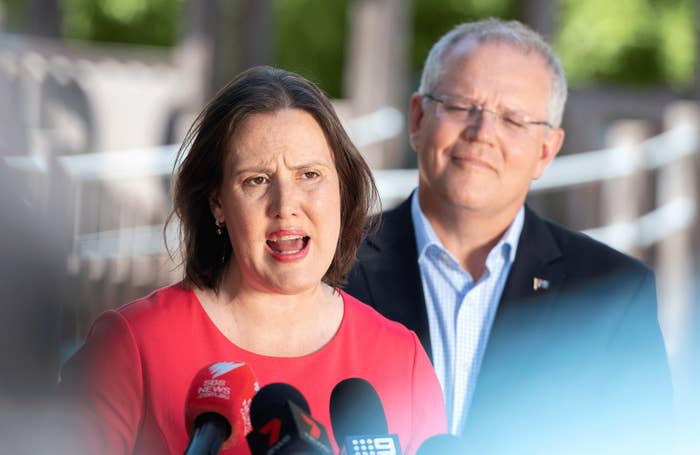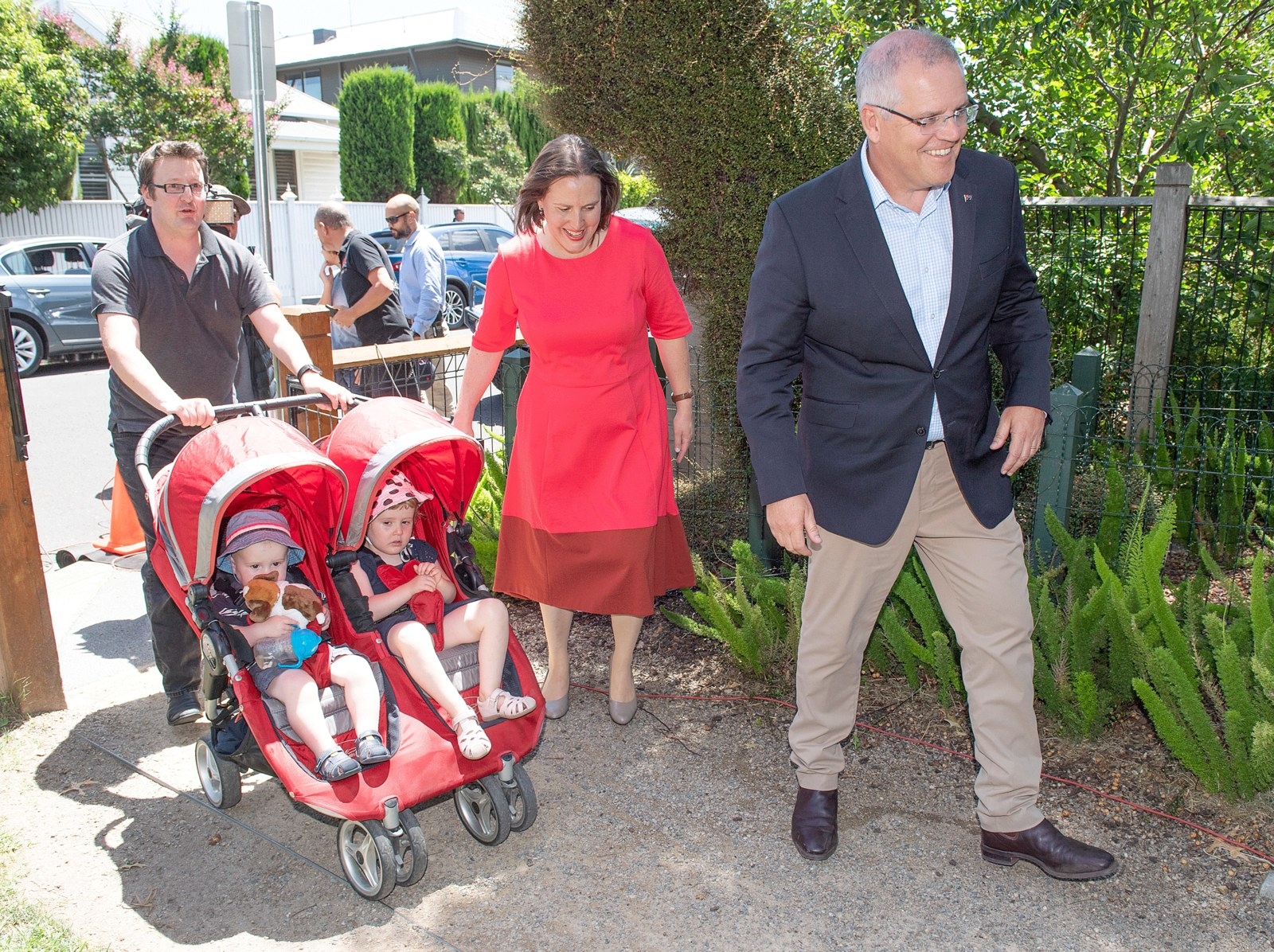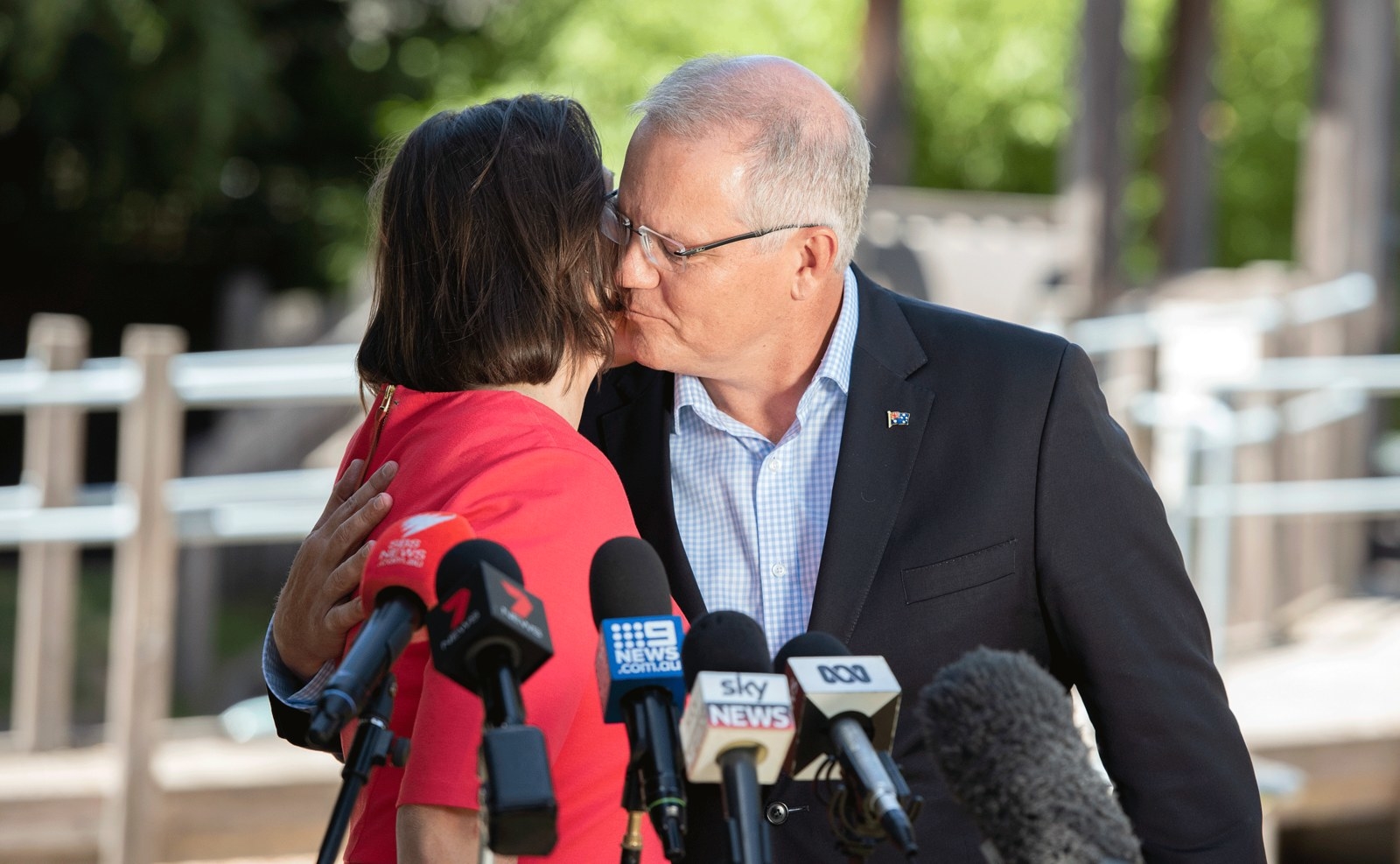Australia's minister for women and industrial relations Kelly O'Dwyer has described her miscarriage while announcing she is leaving politics.

The cabinet minister, who will not recontest her Melbourne seat of Higgins at the election to be held before the end of May, said enduring a miscarriage in parliament house without the support of her husband Jon was difficult.
"I never ever want that to happen again," O'Dwyer told News Corp, adding that she wanted to try for a third child.
Before rushing to score a political point about @KellyODwyer decision to not recontest Higgins, just consider the long hours, separation from family & enormous workload for any young parent serving our community in Cabinet. Job well done Kelly. Good luck for the future. #auspol
“I am so thankful to have [her children] Edward and Olivia and I don’t want to be greedy. If it doesn’t happen then I do see that as it is meant to be. But I don’t want to have a regret about that.”
One in four pregnancies will end before 12 weeks and every day in Australia 282 women will report a pregnancy loss before 20 weeks gestation.
On a press conference on Saturday, O'Dwyer said after "much agonising and with a heavy heart" she would leave politics.

“The reasons are complex and the most compelling are deeply personal," the former lawyer, who entered politics in 2009, told reporters.
“I no longer want to consistently miss seeing my children get up in the morning or go to bed at night and I want to know that when I am around my time with them is not constantly disrupted.
“This does not mean men or women have to choose between family and public service.”
O'Dwyer's departure comes as the Liberal party comes under increasing scrutiny over the lack of women in its ranks.

Liberal politician Julia Banks left the party in November claiming its "meritocracy" approach to getting more women into politics was "completely and utterly flawed".
Prime minister Scott Morrison responded to Banks in September by saying quotas were something he has never supported and that they weren't the best way to "remove obstacles" for women.
I didn’t agree with nearly any policy @KellyODwyer backed, but I found her a friendly person. When I joined the Senate last year, she sent a handwritten welcome letter as a fellow female MP. It’s sad her departure will leave the Liberal Party with fewer women. I wish her well.
There are 30 women in the Senate and 45 in the House of Representatives.
The Coalition accounts for 21 (28%) of them while 44 (58%) are in the Labor party. The rest are Greens and independents, plus one from Pauline Hanson's One Nation (Hanson herself) and one from the Centre Alliance (Rebekha Sharkie).
